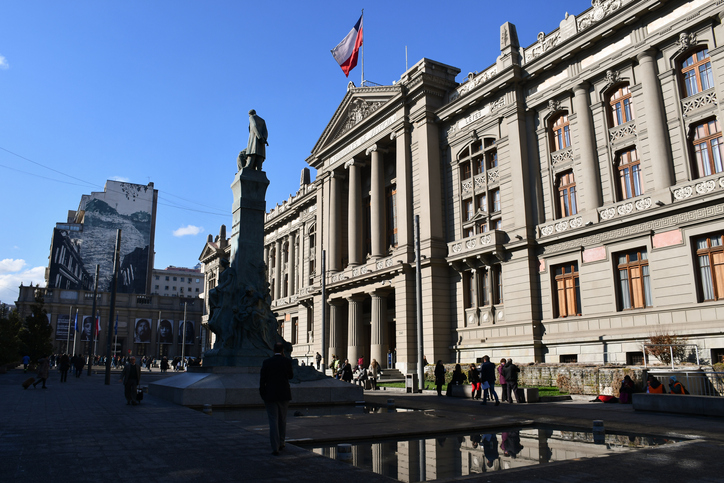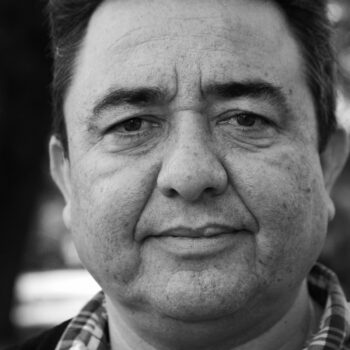The contours of a new Chile started to take shape last month, as the 155 members of a newly elected Constitutional Convention started deliberating on the task at hand: the drafting of a new political constitution.
Over the past three decades, massive social movements throughout Chile have fought to address the deep inequalities engraved in the Political Constitution of 1980, a neoliberal social contract imposed by the dictatorship of General Augusto Pinochet. On October 18, 2019, Chileans took to the streets again, forcing the right-wing government of Sebastian Piñera to accept a whole new social contract, this time written by legitimately elected representatives of the Chilean people.
In the midst of such historic times for the Chilean people, I talked to Rosa Catrileo, elected member of the Constitutional Convention on behalf of the Mapuche nation, Chile’s most numerous ancestral people. Her work will be tough: to vindicate her people’s demand for autonomy as a nation in their own ancestral territory, the Wallmapu.
Catrileo is a lawyer dedicated to representing Mapuche communities in Chilean courts on matters of land, water, and the environment. She’s also part of a collective called Mapuche History Community, a group of Mapuche intellectuals from different professional backgrounds who support their nation’s demand for autonomy and territorial reparations. In this interview, we discuss her work in the community, the Mapuche demands for land and water in their historic territory, and how the new constitution can address those critical issues.
What does Catrileo mean in Mapudungun, the Mapuche language?
It means “cut river ” or “where the river is cut.”
Before our conversation, you were assisting a Mapuche community resisting the construction of a hydroelectric plant. Tell us about what’s happening there.
We are in the Wiñol Tripantu period [Mapuche new year], so I’ve had to be in many places. Today I was in the mountainous area of the Wallmapu [Mapuche territory on the Western side of the Andes, today’s southern Chile], in Melipeuco, with communities that have been resisting the installation of a hydroelectric plant on the Truful Truful river. The environmental impact assessment resolution came out last week authorizing the construction of a hydroelectric power station on the river, one of the few rivers that’s still free. The people were doing Mapuche ceremonies next to the river, taking all the newen [power] to initiate what they call the huinca [colonizer] process of defense of the river, with legal filings before the environmental courts.
Water is privately owned in Chile.
The current constitution resolved that water rights were to be auctioned; many water rights were registered, free of charge. And those rights are permanent. The Mapuche people didn’t know about these permits. Since there is a separation of land ownership, water ownership, and subsoil ownership, the Mapuches are left with the little layer of soil for our garden; whatever there is below that, we have nothing to do with, and the water that passes through our land, we cannot use; we don’t have the rights. The ownership of the water is not linked to ownership of that land, which belongs to the communities.
What are the most important issues facing the Mapuche people today and, as a member of the Constitutional Convention, which ones will you try to address?
It’s 500 years since the European invasion of the Americas, but in the case of the Mapuche, it’s not so many years. The Spanish crown never subdued us. They recognized our territory and there was a kind of diplomacy that manifested itself in parliaments or conferences. Our territory was invaded 200 years ago by the state of Chile; until 200 years ago, we were an autonomous people.
Our main demand will always be the return of our usurped lands and territories. Without our territories, we cannot exercise our rights; therefore the main thing is recognition of this Wallmapu, the physical place where we can exercise the other collective rights that we have as a people. We want autonomy for our affairs but also to participate in the Chilean state institutions with our own voice, not under the tutelage of political parties.
Now some communities have declared themselves in territorial control. And what these communities are doing is recovering territory, especially from forestry companies. They occupy these properties that are under the name of the forest companies and they say: we are going to regulate ourselves. It is our territory and we say what goes. One of the things they are trying to do is to remove all the non-native trees, reforest, and start a process of rebuilding Mapuche society, with traditional authorities, with the rules that we give ourselves.
How will you know that the new constitution reflects what the people want?
The popular participation process is the first thing that’s going to be regulated in the rules of the Constitutional Convention. First, we are trying to gather and establish common principles among the seven Mapuches in the Convention. We are also going to have to go to Indigenous territories. It should be the obligation of the entire convention, not just of the Indigenous constituents.
The people elected to the convention already come from grassroots organizations, community organizations, grassroots movements. That is why, for example, today we were with communities resisting the hydroelectric plant. I have contact with organizations that are in the process of territorial recovery in various municipalities in the Wallmapu. In my case, I was elected as a Mapuche constituent for the Wallmapu itself; my ties are here, the toughest spot, where the repression is and the political prisoners are.
What is your aspiration regarding the Constitutional Convention?
That they guarantee our rights and that they take charge of the territorial restitution and of the Mapuche ancestral waters. It is a debate that we will be able to have for the first time at the Constitutional Convention. It’s the obligation of the state to restore the Mapuche land; we will continue to advance until we reach our final objective, to be autonomous so that our children can govern themselves, within the margins of the state, but govern themselves.

